I'm loading C++ library from my C# code dynamically. I want to find small image inside large one, converting large image to byte[] and small image read from physical path.
When I call imdecode then large_img always returns 0 cols and rows.
C#
[UnmanagedFunctionPointer(CallingConvention.Cdecl)]
private delegate ImageParams GetImageParams(IntPtr dataPtr, int size, string path);
// ...
byte[] largeImgByteArr = this.BitmapToByteArray(bmp);
IntPtr dataPtr = Marshal.AllocHGlobal(largeImgByteArr.Length);
Marshal.Copy(dataPtr, largeImgByteArr, 0, largeImgByteArr.Length);
C++
ImageParams GetImageParams(BYTE* largeImgBuf, int bufLength, const char* smallImgPath)
{
Mat large_img_data(bufLength, 1, CV_32FC1, largeImgBuf);
Mat large_img = imdecode(large_img_data, IMREAD_COLOR);
Mat small_img = imread(smallImgPath, IMREAD_COLOR);
int result_cols = large_img.cols - small_img.cols + 1;
int result_rows = large_img.rows - small_img.rows + 1;
Mat result;
result.create(result_cols, result_rows, CV_32FC1);
matchTemplate(large_img, small_img, result, CV_TM_SQDIFF_NORMED);
normalize(result, result, 0, 1, NORM_MINMAX, -1, Mat());
}
What I'm doing wrong here?
Note: I have checked that image path is correct and byte array not empty.
Edit 1
I changed my code a bit by providing the large image width and height, also got rid of imdecode and changed something like in this post.
ImageParams GetImageParams(BYTE* largeImgBuf, int height, int width, int bufLength, const char* smallImgPath)
{
// Mat large_img = imdecode(large_img_data, IMREAD_COLOR);
Mat large_img = Mat(height, width, CV_8UC3, largeImgBuf);
Mat small_img = imread(templPath, 1);
/// ...
}
Now it returns rows and columns but when call matchTemplate method it throws an exception:
